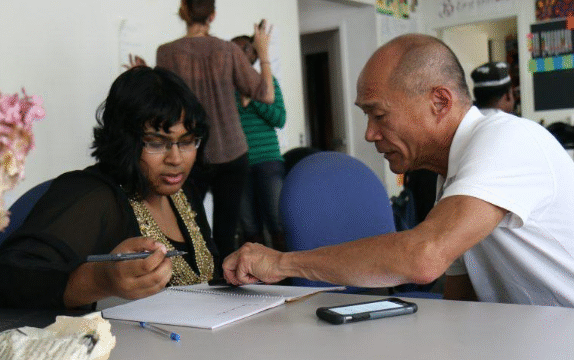In today’s fast-changing world, learning does not end
after finishing school or university. New technologies,
methods, and job requirements continue to shape
how we live and work. One way people are keeping up with these changes is by earning learning certificates. While these certificates may not always replace traditional degrees, they provide an excellent way to build skills, showcase expertise, and stay competitive. More importantly, they create a structured path for personal and professional growth that can fit into almost anyone’s schedule.
At first glance, a certificate might look like just another piece of paper. However, behind it lies effort, discipline, and newly gained knowledge. Employers and colleagues often see it as a sign of commitment, while learners themselves experience a boost in confidence. The real value is not the certificate itself, but the skills that come with it and how those skills can open new doors.
One of the main advantages of earning a learning certificate is the focus on practical skills. Traditional academic programs are valuable, but they often take years to complete and may include subjects not directly related to a person’s career goals. Certificates, on the other hand, tend to be shorter and more targeted. They are usually designed around specific competencies, such as digital marketing, data analysis, project management, or even creative fields like graphic design. By completing such programs, learners quickly gain abilities they can apply right away in their work or personal projects.
Another way certificates improve skills is by keeping people updated on industry trends. For example, a professional who completed a computer science degree ten years ago might not have studied cloud computing, artificial intelligence, or the latest programming frameworks. By enrolling in certificate courses, that same professional can refresh their knowledge and learn about current tools that are in demand. This ensures they stay relevant in their field and remain adaptable to changes.
Learning certificates also encourage people to develop soft skills. Many programs include communication, leadership, time management, or teamwork components. These areas are just as important as technical knowledge, especially in jobs where collaboration and problem-solving are essential. By combining technical expertise with strong interpersonal abilities, learners become well-rounded professionals who can handle challenges with confidence.
Self-discipline is another skill naturally developed through certificate learning. Most programs, especially online ones, require students to set their own schedules and take responsibility for finishing lessons. Balancing work, family, and study can be demanding, but those who succeed often emerge with improved organizational skills and a stronger sense of determination. These qualities are transferable to nearly any job or personal goal.
Certificates also help people build digital literacy. In the past, learning often took place in classrooms with textbooks and face-to-face discussions. Today, much of it happens online through virtual lessons, interactive assignments, and digital assessments. As learners engage with these platforms, they become more comfortable with technology, gaining skills that are valuable not just for the course but also for modern workplaces. Knowing how to use learning platforms, collaborate online, and manage digital tasks is increasingly important in almost every career.
Another benefit of certificates is that they allow people to explore new interests without committing to long programs. Someone curious about web design, for example, can take a certificate course to test the waters. If they enjoy it, they can continue to build expertise, but if not, they still walk away with a new skill and a credential. This flexibility gives learners the freedom to experiment and expand their horizons.
Beyond career-related benefits, certificates also improve personal skills. For instance, a certificate in nutrition might help someone make healthier food choices, while a certificate in photography can enhance creativity and provide a fulfilling hobby. These experiences show that learning is not only about career advancement but also about enriching everyday life. Skills gained from certificates often lead to greater self-confidence and a deeper sense of accomplishment.
Collaboration and networking are also part of the experience. Many certificate programs connect learners with instructors and fellow students through discussion boards or group projects. These interactions expose people to different perspectives and encourage them to practice teamwork in a new setting. In some cases, these connections even lead to long-term professional relationships or mentorship opportunities.
Another way certificates improve skills is through measurable progress. Unlike informal learning, which may not have clear benchmarks, certificates usually include quizzes, assignments, or projects. These assessments give learners feedback on their strengths and areas where they can improve. The process of working toward completion helps them recognize their growth step by step. Over time, this structured approach makes it easier to see how much knowledge has been gained.
The confidence boost that comes with certificates is worth highlighting as well. Finishing a course and receiving recognition reinforces the idea that learning is possible at any stage of life. Many people underestimate themselves, thinking they are too busy or too old to study again. Certificates prove otherwise, showing that small, manageable steps can lead to meaningful achievements. This confidence often encourages learners to continue pursuing more skills, creating a cycle of lifelong learning.
Employers value certificates because they demonstrate initiative. When someone voluntarily signs up for a program, it shows motivation and a willingness to grow. In workplaces where change happens quickly, this kind of attitude is highly appreciated. It signals that the employee is proactive and ready to take on new challenges. Even if the certificate is not directly related to the job, the learning process itself indicates adaptability, which is a valuable trait in any profession.
From a broader perspective, certificates contribute to building a culture of continuous improvement. When more people invest in learning, workplaces become more dynamic, communities benefit from shared knowledge, and industries evolve more quickly. Each individual who gains new skills contributes to a bigger picture of innovation and progress. This is why certificates, while small in scale, can have a significant collective impact.
In the end, learning certificates are about more than recognition. They represent curiosity, determination, and growth. They help people sharpen existing abilities, discover new ones, and develop habits that extend beyond the classroom. Whether pursued for career advancement, personal enrichment, or pure curiosity, they play an important role in modern education and skill-building.
As the world continues to change, those who embrace learning will always have an advantage. Certificates make this process accessible, affordable, and rewarding. By opening doors to new knowledge and strengthening important skills, they remind us that education is not a one-time event but a lifelong journey. And with every certificate earned, that journey becomes a little richer and more meaningful.






